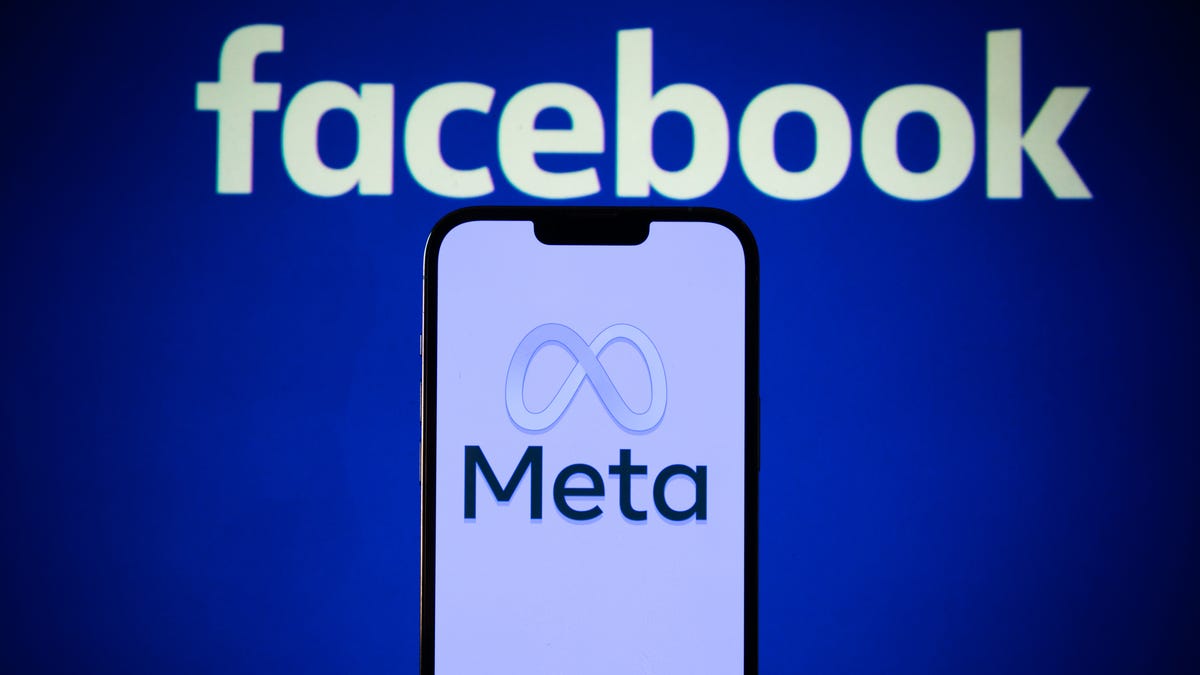Facebook Parent Meta Settles Lawsuit Alleging Discriminatory Housing Ads
As part of the settlement with the US Department of Justice, Meta said it will stop using an ad tool for housing ads.

Facebook renamed itself Meta last year.
Facebook parent company Meta on Tuesday reached a settlement with the US Department of Justice over a lawsuit that alleged the social network allowed landlords and home sellers to run housing ads that excluded people based on race, sex, religion and other characteristics.
As part of the settlement, Meta said it would stop using an ad tool called Special Ad Audiences used for housing, employment and credit ads. The tool uses an algorithm so advertisers can target ads at users who share similarities with groups of individuals the advertisers select. That tool partly relies on characteristics such as race and sex protected by the Fair Housing Act, allowing advertisers to exclude certain people from seeing housing ads, the DOJ said. The company has until Dec. 31 to sunset the tool and will have to develop a new housing ads system by that month that addresses potentially discriminatory advertising.
The settlement also shows how Meta is responding to allegations that its ads could be used to discriminate. For years, Meta has faced claims that advertisers could abuse Facebook ads to exclude people from housing, employment opportunities or even financial services.
Kristen Clarke, assistant attorney general of the Justice Department's Civil Rights Division, called the settlement "historic," saying it was the first time Meta decided to scrap one of its algorithmic ad targeting tools.
"As technology rapidly evolves, companies like Meta have a responsibility to ensure their algorithmic tools are not used in a discriminatory manner," Clarke said in a statement.
The lawsuit also outlines the amount of data Meta collects about Facebook users as part of its ads business. Users provide their sex, relationship status, what accounts they follow and even website activity outside of the social network. Creating an avatar on the site or uploading a profile picture also gives Facebook more data about a user's physical appearance.
Meta said in a blog post that advertisers already have restrictions when it comes to targeting, including on using age, gender or ZIP code, but the company is trying to make improvements.
"Discrimination in housing, employment and credit is a deep-rooted problem with a long history in the US, and we are committed to broadening opportunities for marginalized communities in these spaces and others," Roy L. Austin Jr., Meta's vice president of civil rights and deputy general counsel, said in the blog post.
The company cited other changes that it's made over the years to address this problem, such as barring the use of gender or age targeting, and requiring that location targeting have a minimum 15-mile radius for housing, employment and credit advertisers.
Meta also agreed to pay $115,054 to the US, the maximum penalty under the Fair Housing Act. The social media giant earned $39.4 billion in profit last year on $117.9 billion in revenue.
The social network has faced complaints about discriminatory ads before. In 2016, ProPublica reported that Facebook allowed advertisers to place housing ads that excluded users by race, which is illegal under federal law. The company then pulled a tool that allowed advertisers to exclude users from seeing housing, employment and credit ads based on their "ethnic affinity."

